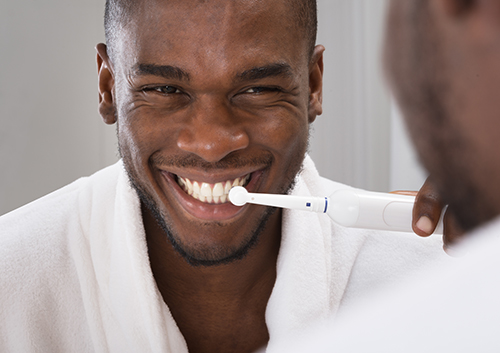April is Oral Cancer Awareness Month
April 6th, 2020

What is oral cancer?
April is Oral Cancer Awareness Month. If you have been putting off a visit to our Virginia Beach, VA office, now is an excellent time to schedule one. Regular visits to Oral Surgery of Tidewater can be the first line of defense against oral cancer, by identifying early warning signs of the disease, or helping you with preventive care tips to lower your chances of developing it.
Oral Cancer Rates in America
Nearly 40,000 people in the U.S. will be diagnosed with oral cancer this year, and more than 8,000 die every year from this disease. It is a devastating illness: most people who are diagnosed with it do not live more than five years beyond their diagnosis. Oral cancer has a higher death rate than many other common cancers, including cervical cancer, testicular cancer, Hodgkin’s lymphoma, and thyroid or skin cancers. The high death rate results from the fact that most oral cancers go undiagnosed until the disease is well advanced and has spread to another part of the body—most often, the lymph nodes in the neck.
What causes oral cancer?
While there is no way to predict exactly which individuals will get oral cancer, there are some potential causes you should know about—because in some cases, you can minimize these risk factors.
- Age (most patients diagnosed with oral cancer are over the age of 40)
- Tobacco use, either from cigarettes or smokeless chewing tobacco
- Excessive alcohol consumption (especially in combination with tobacco use)
- Persistent viral infections, such as HPV16
- A diet low in fruits and vegetables
In addition, oral cancer tends to occur at a rate six times greater in men than in women, and more often for African Americans than other ethnic groups. No genetic links have been identified to explain the higher incidence in these populations, so lifestyle choices remain the likeliest cause.
Oral Cancer Treatments
Once a diagnosis has been made, treatment of oral cancer usually involves a multi-disciplinary team that includes surgeons, oncologists, dentists, nutritionists, and rehabilitation and restorative specialists. Our team will decide on the best approach for each patient, depending on the risk factors and how far the cancer has progressed. The strategy will be different in every case. Some of the most common methods include chemotherapy, radiation, and potential surgery.
Finding out you have cancer can be devastating news. If you are concerned that you might be at risk for developing oral cancer, talk to us about screenings and other things you can do to reduce your risk.





 Website Powered by Sesame 24-7™
Website Powered by Sesame 24-7™